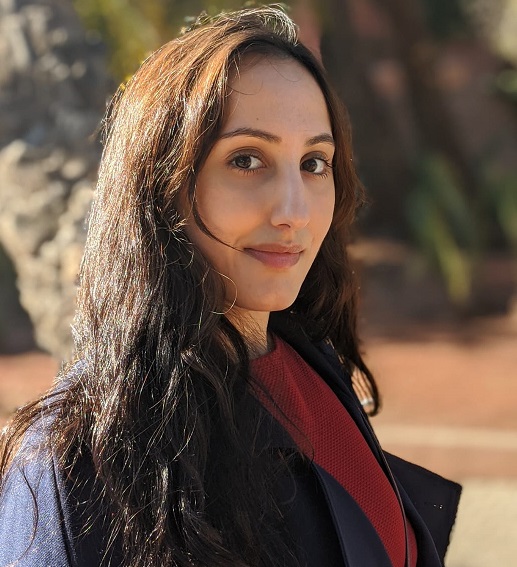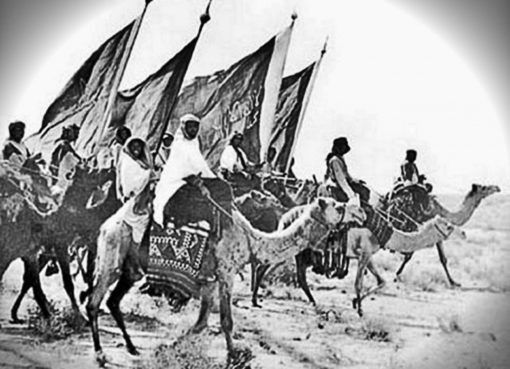Summary: Iraq has implemented measures to prevent the spread of Covid-19, but confusing messages and political opportunism are hobbling an effective response.
Iraq is one of the Arab countries hit hardest by the coronavirus pandemic but like others it has been accused of hiding the full scale of the problem. Last Thursday Reuters reported that the country was suffering many times more COVID-19 cases than had been publicly reported. On Friday Iraq’s Communications and Media Commission banned Reuters from the country for three months, fined them and demanded an apology for “putting social security at risk.”
We thank Zainab Mehdi for the article we circulate below. Zainab is a British-Iraqi researcher for the Donor Interventions and Water Governance in Basra Project at the London School of Economics and a freelance journalist specialising in Iraqi contemporary politics, culture, and history.
As of April 5, Worldometer recorded the number of Covid-19 cases and deaths in Iraq as 961 and 61 respectively.
Although Iraq’s officially reported numbers are less than more severely affected countries such as the US, China, Italy, Spain, and Iran, the rapid growth in the number of positive cases since the beginning of March suggests that the country, with a population of 40 million and a health service that has been left in shambles through decades of sanctions, war, corruption and neglect, will soon be placed in a precarious situation.
Responding to the declaration of a global pandemic by the World Health Organization (WHO), the Iraqi government has extended partial curfews in cities such as Baghdad and Najaf to the whole country, as part of its measures to combat the virus. Like most countries worldwide, events have been cancelled, gatherings are now prohibited, and restaurants, bars, cafes, and fast food chains have shut across Iraq.
Religious figures have also had a part to play in responding to the coronavirus outbreak. Iraq’s most senior Shia cleric Grand Ayatollah Ali al-Sistani has called for the suspension of mass prayers, including the revered ones held on Fridays. However, the mixed messages from the cleric Muqtada al-Sadr, one of the most powerful political figures among Shia leaders, have sown confusion among his millions of followers and the wider population.
“On the one hand, Muqtada al-Sadr has promoted social distancing and called on people to comply with the government’s health advice as well as its curfew. On the other hand, he promoted visiting the Shi’ite holy sites, which would expose more people to catching the virus – and which also runs against the government’s health advice and curfew,” Mamoon Alabbasi, a political analyst based in London, told Arab Digest. By way of example, Alabbasi cited Sadr’s view that the burial site of Imam Ali, the cousin and son-in-law of the Prophet Muhammad, located in Najaf be excluded from the government ban on visits to holy shrines.
And in reference to visiting the holy shrine of the seventh of the Twelver Shia imams Musa bin Ja’far al-Kadhim and his grandson during the Islamic calendar month of Rajab, whereby Shi’ites in Iraq are expected to commemorate the death of Imam Al-Kadhim, Sadr tweeted: “I ask Allah to accept your visit and obedience” on Friday 20 March.
With that blessing from Sadr, 400,000 Iraqis ignored the government imposed curfew and marched their way to the golden-domed mausoleum of Imam al-Kadhim in Baghdad, where authorities allowed an outer gate to remain open so that visitors could enter the neighbouring courtyard. So many people in such close proximity underscores the threat of permitting pilgrims to pay their visits to holy sites at a time when the spread of the contagion is growing rapidly. Muqtada al-Sadr is playing a dangerous game, hoping to hold his political base while paying lip service to the government’s initiatives.
Other political figures see Covid-19 as an opportunity to promote their own positions in the ongoing jockeying to form a new government. Among the most prominent examples is the promise made by parliament speaker Mohammad al-Halbousi to construct a hospital in Baghdad to combat the virus. Where the funds would come from remains an unanswered question and given the extent of corruption within Iraq’s health services such a project, though very necessary, seems most unlikely to see the light of day.
But there are many others who have not used the outbreak for their own gain. They include civil society activists and local religious figures (as distinct from big religious parties or personalities), who are reported to have taken part in charitable activities such as organizing food distributions and cleaning campaigns. Hashd militias, predominantly Shia paramilitary forces, have also donated blood to support those infected with the virus. Yet in the midst of these efforts, the country is still caught in a political quagmire which makes the task of fighting the pandemic even more formidable.
One major challenge is the difficulty in finding a suitable candidate for prime minister, one that would garner enough support from major factions and external influencers to be able to pull together a workable cabinet. Adnan al-Zurfi, a former governor of Najaf Governorate was chosen as prime minister designate on 17 March and given 30 days to select a cabinet. Given that the Iranians don’t approve of him, nor does he have the support of Muqtada al-Sadr, it is a deadline unlikely to be met even without the coronavirus crisis.
Within the same context, another challenge concerns the Iraqi protesters who have had to suspend their demonstrations against corruption, poor services, unemployment, and Iran’s influence on Baghdad. With a particular focus on the last mentioned, regardless of the fact that the Iranians are busy dealing with their own very serious Covid-19 outbreak, Tehran’s hold over Iraq remains strong. Iran’s continuing influence is made possible via its proxies in Iraq, such as the parliamentary al-Binaa Alliance led by Hadi al-Amiri and the former prime minister Nouri al-Maliki. Iran also is able to rely on militias that are effectively outside state control and taking direction from Tehran. Thus, for the time being, the suspension of mass protests is working very much in Iran’s favour.
Despite the uncertainty of where the country will see itself in the weeks and months to come, it is clear that Iraq must strengthen its lockdown measures – especially around religious visits – if it wants to contain the rise in Covid-19 cases and deaths. Welfare support provided by civil society activists and religious charities must also continue. Most urgently, politicians and powerful religious figures must put aside differences and find common cause in forming a government that can begin to effectively combat the pandemic. By now it should be abundantly clear to figures like Muqtada al-Sadr that time is very quickly running out.
(*) Zainab Mehdi is a British-Iraqi researcher for the Donor Interventions and Water Governance in Basra project at the London School of Economics and freelance journalist specialising in Iraqi contemporary politics, culture, and history. She has a BSc in Modern History and International Relations from the University of Essex and a Master’s in Near and Middle Eastern Studies from the School of Oriental and African Studies (SOAS).








Comment here